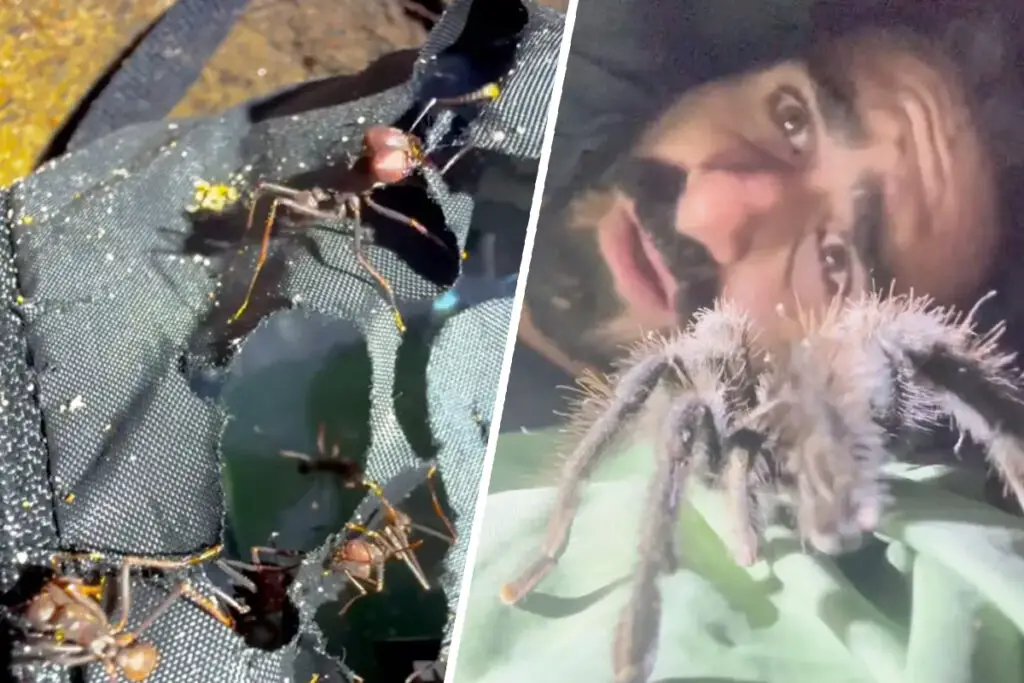Blood Truck Spill Turns Russellville into a Gruesome Scene

Russellville, Arkansas, got a nasty surprise on Saturday, October 12th, when a tanker truck hauling animal blood sprung a leak, splattering streets with a gory mess.
What should’ve been a quiet morning turned into a chaotic cleanup effort, with residents reeling from the sight and smell.
Here’s the full scoop on this bloody debacle, broken down into digestible chunks.
The Spill: A Bloody Trail Through Town
Early Saturday morning, a tanker truck owned by Patriot Trucking out of Danville started leaking animal blood along Interstate 40 at the 78-mile marker.
The gruesome trail didn’t stop there. It continued west on Highway 64, snaked through West Main Street, and turned south onto South Arkansas Avenue (Hwy 7) as the truck headed toward Pet Solutions in Centerville.
Imagine driving along and seeing blood streaking the roads—it’s the kind of thing that makes your stomach churn.
The spill wasn’t just a visual nightmare. It left behind a stench that had locals holding their noses.
As residents drove through the affected areas, their tires picked up the sticky mess, spreading it further and turning a bad situation into a citywide headache.
Social media lit up with posts from folks shocked at the scene, with some calling it “something out of a horror movie.”
Community Impact: A Sticky Situation
For Russellville residents, the spill was more than an eyesore—it was a disruption.
Cars driving through the affected streets ended up coated in blood, leaving drivers to deal with the gross task of cleaning their vehicles.
The smell lingered, making morning commutes anything but pleasant.
Posts on X captured the mood, with one user writing, “Drove through Russellville this morning and my car looks like a crime scene. What is going on?!”
The incident sparked concern about safety and environmental risks.
While the spill was later deemed non-hazardous, the idea of animal blood coating public roads raised eyebrows.
Could it contaminate storm drains? Would it affect local water sources? These questions swirled as residents demanded answers.
Official Response: Quick Action, Mixed Results
Authorities didn’t waste time jumping into action.
Justin Drittler, Director of the Pope County Office of Emergency Management, was on the scene early, inspecting the spill and coordinating with the Arkansas Department of Environmental Quality (ADEQ).
By 11:15 a.m., the city of Russellville posted a public service announcement (PSA) on social media, outlining the spill’s path and reassuring residents that cleanup was underway.
The PSA explained that the truck had leaked “bio-hazard material of animal blood” along West Main Street, past the courthouse, and down South Arkansas Avenue toward Dardanelle.
But here’s where things get murky: Drittler later clarified that ADEQ determined the spill wasn’t bio-hazardous since the tanker wasn’t marked as such.
This contradiction left some residents scratching their heads, wondering how animal blood could be considered anything but hazardous.
Cleanup Efforts: Heroes Step Up
Hodges Towing & Recovery became the unsung heroes of the day.
Called in to tackle the mess, they worked tirelessly to clean the blood-soaked streets.
Drittler praised their efforts, saying, “Hodges Towing & Recovery went above and beyond what was expected.
Despite the size of the job, they kept at it to make sure the roads were safe.” By the end of the day, most of the affected areas were clear, letting traffic flow normally again.
One surprising twist? The Russellville Fire Department was asked to help but declined, stating their services weren’t needed.
While they may have had valid reasons, their absence didn’t go unnoticed, especially given the scale of the incident.
It’s hard not to wonder if their expertise could’ve sped things up.
A Recurring Nightmare
Here’s the kicker: this isn’t Russellville’s first rodeo with a spill like this.
On October 11, 2018—almost exactly seven years earlier—a similar incident happened near East 16th Street and South Arkansas Avenue.
That time, a truck was caught dumping chicken parts. Same company, Patriot Trucking. Drittler noted, “The trucking company is not new to this.”
That history raises red flags about their operations. Two major spills in less than a decade? That’s not a great track record.
The 2018 incident led to discussions with Patriot Trucking, but it’s unclear if any real changes were made.
Drittler said further talks would happen this time, but whether that leads to action remains to be seen.
Personally, I think it’s time for some serious accountability. If a company keeps letting this happen, shouldn’t there be stricter oversight?
Safety and Environmental Questions
The ADEQ’s ruling that the spill wasn’t bio-hazardous sparked debate.
By definition, bio-hazardous waste includes animal blood, especially if it contains infectious substances.
The tanker’s lack of a bio-hazard label technically cleared it, but that feels like a loophole.
Residents deserve clarity on whether this spill posed any real risks, like contamination of local waterways or health hazards from prolonged exposure.
From my perspective, even if the blood wasn’t infectious, the environmental impact can’t be ignored.
Blood washing into storm drains could affect aquatic life or soil quality. Plus, the psychological toll of driving through a blood-soaked town isn’t nothing.
Authorities need to be upfront about these risks to rebuild trust.
Patriot Trucking Under Scrutiny
Patriot Trucking, based in Danville, hasn’t publicly commented on the spill.
They’re likely conducting an internal review to figure out what went wrong—maybe a faulty valve or poor maintenance.
But given their history, it’s hard not to question their practices.
Transporting animal waste through populated areas is no small responsibility, and two major spills in seven years suggest they might be dropping the ball.
I’d argue it’s time for regulators to step in. Maybe that means stricter inspections for trucks carrying animal byproducts or harsher penalties for spills.
Whatever the solution, Russellville shouldn’t have to deal with this again.
Community Resilience Shines
Despite the chaos, Russellville showed its strength. Drittler’s quick response, paired with Hodges Towing’s hard work, kept the situation from spiraling.
The community’s ability to rally—while still voicing their frustrations on social media—shows a town that’s tough but rightfully fed up.
It’s inspiring to see locals and officials come together, but it’s also a reminder that they shouldn’t have to.
What’s Next?
The blood truck spill has left Russellville with more questions than answers.
Why does this keep happening? Are current regulations enough? Will Patriot Trucking face consequences? As the town moves forward, residents are likely hoping for stronger safeguards to keep their streets clean and safe.
For now, the memory of that bloody Saturday will linger, a stark reminder of what can go wrong when oversight fails.
Table: Timeline of the Russellville Blood Truck Spill
| Time/Event | Details |
|---|---|
| Early Morning, October 12th | Tanker leaks blood on I-40 at 78-mile marker, continues on Hwy 64. |
| Morning | Spill spreads to West Main St, South Arkansas Ave; residents’ cars affected. |
| Morning | Social media posts highlight public concern; Drittler assesses scene. |
| Morning | Drittler contacts ADEQ; cleanup plans begin. |
| 11:15 a.m. | City issues PSA detailing spill and cleanup efforts. |
| Daytime | Hodges Towing cleans roads; Fire Department declines to assist. |
| End of Day | Roads mostly cleared; traffic resumes normally. |
































